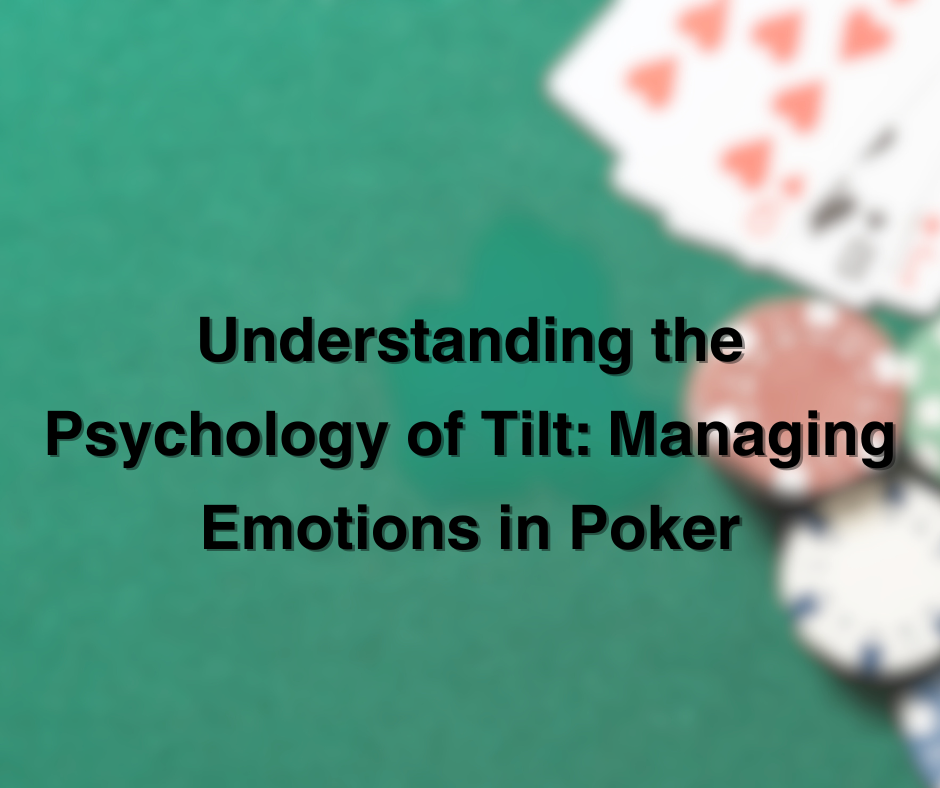
What is tilt in poker?
How does tilt affect poker players?
What are the common triggers of tilt?
How can players recognize tilt?
Strategies for managing tilt
Developing emotional resilience
The role of mindset in poker
Cultivating mindfulness at the table
Seeking professional help
Building a supportive poker community
Strategies for Overcoming Tilt in Poker: A Comprehensive Guide
Identifying the Triggers of Tilt
Bad Beats: Experiencing a string of unlucky hands or losing a significant pot can trigger feelings of frustration and anger.
Obnoxious Opponents: Dealing with rude or disrespectful opponents can disrupt focus and exacerbate tilt.
Fatigue and Stress: Physical and mental exhaustion can impair judgment and make it harder to control emotions.
Distractions: External distractions, such as noise or interruptions, can disrupt concentration and increase susceptibility to tilt.
Developing Emotional Resilience
Building emotional resilience is essential for poker players to navigate the emotional rollercoaster of the game. Key strategies for developing resilience include:
Acceptance: Accepting that variance is inherent in poker and focusing on long-term results rather than short-term outcomes can help players maintain perspective.
Positive Self-Talk: Avoiding negative self-talk and reframing losses as opportunities for growth can bolster mental resilience and confidence.
Seeking Support: Seeking support from peers, mentors, or mental health professionals can provide valuable perspective and encouragement during challenging times
Cultivating Mindfulness at the Table
Practicing mindfulness can help poker players stay grounded and focused during gameplay. Techniques such as:
Visualization: Visualizing successful outcomes and staying focused on the present moment can enhance concentration and prevent tilt.
Body Scanning: Paying attention to bodily sensations can help players stay attuned to their emotions and reactions, enabling them to make more rational decisions.
Sensory Awareness: Staying mindful of sensory experiences, such as the feel of the cards or the sounds of the chips, can enhance presence and prevent distractions.
Implementing Self-Regulation Strategies
Self-regulation is crucial for managing tilt and maintaining composure at the table. Key self-regulation strategies include:
Taking Breaks: Stepping away from the game when emotions run high can provide valuable time to regroup and refocus.
Deep Breathing: Engaging in deep breathing exercises can help calm the nervous system and reduce stress levels.
Setting Limits: Setting limits on the amount of time or money spent playing can prevent tilt from escalating and protect bankroll management
